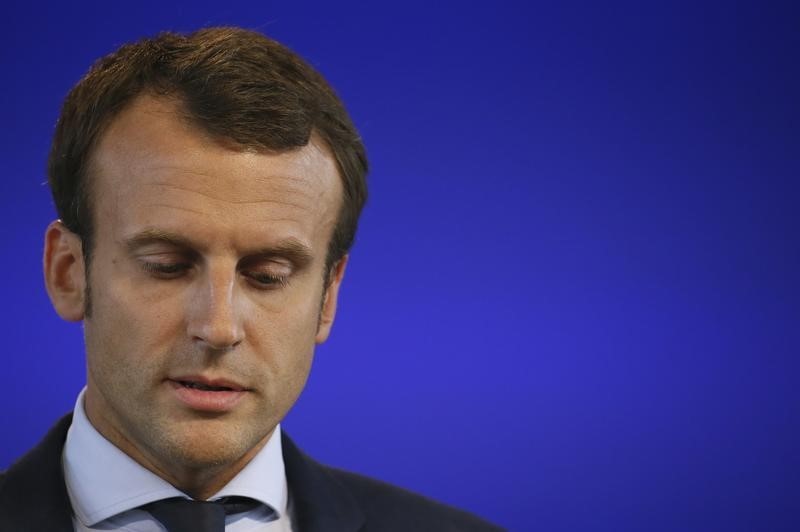Investing.com - As European indices, led by the CAC 40, tumble following the announcement on Sunday of the dissolution of the National Assembly and the organization of legislative elections by Emmanuel Macron, Gavekal Research analysts estimated in a note published on Monday that this is a risky bet for the French president.
The analysts first pointed out that the question arises as to why Macron decided to call for new elections, given the weakness of his party in the European elections, and given the fact that there are no domestic electoral challenges scheduled before 2027.
- ⚠️ THOUSANDS OF INVESTORS ARE BENEFITING! Join InvestingPro to equip yourself with professional tools and receive investment ideas to boost your portfolio and know which stocks to buy regardless of market conditions! CLICK HERE to take advantage of the rate reserved for our readers and take your investments to the next level! ⚠️
They noted that the French president could easily have tried to brush aside this defeat, implying that the European elections are not important, and that their relevance to national politics is marginal.
However, the Gavekal analysts highlighted that such a strategy would have had several drawbacks, firstly undermining the legitimacy of Macron and his minority government, and increasing the risk that opposition parties themselves would demand the dissolution of the National Assembly, or even Macron's resignation.
Secondly, they pointed out that after 7 years in power, Macron has few levers left to increase his and his party's popularity. Finally, this would have made Macron's government a prime target for the opposition for the next 3 years, which would at best have allowed us to hope for a stabilization of Macron's popularity, thus approaching the 2027 presidential elections in a very weak position compared to Marine Le Pen.
Thus, the Gavekal analysts believe that Macron wanted to preempt the opposition, which constitutes a risky bet.
Indeed, they predict that the National Rally will become the largest single party in the Assembly following the anticipated French legislative elections, which will be held on June 30 and July 7.
In the event of an absolute majority, Macron will have to appoint a Prime Minister from the RN, ushering in a period of cohabitation that would leave Macron managing foreign policy while the RN handles domestic affairs.
In this case, Gavekal highlights that the RN will be exposed to the current discontent directed against Macron and his Renaissance party, and suggests that Macron's plan is that this will reduce the popularity of the RN, which would then approach the 2027 presidential election weakened.
If the RN does not obtain an absolute majority while becoming the largest party in the Assembly, Gavekal predicts that the other opposition parties will have to form a coalition with Renaissance to keep the RN out of government, which would allow Macron to consolidate the center and attract the left according to them.
Gavekal therefore believes that Macron's decision to dissolve the National Assembly results from a bet on a major shake-up of the French political landscape, and only time will tell whether it was a shrewd maneuver or a gross mistake.
